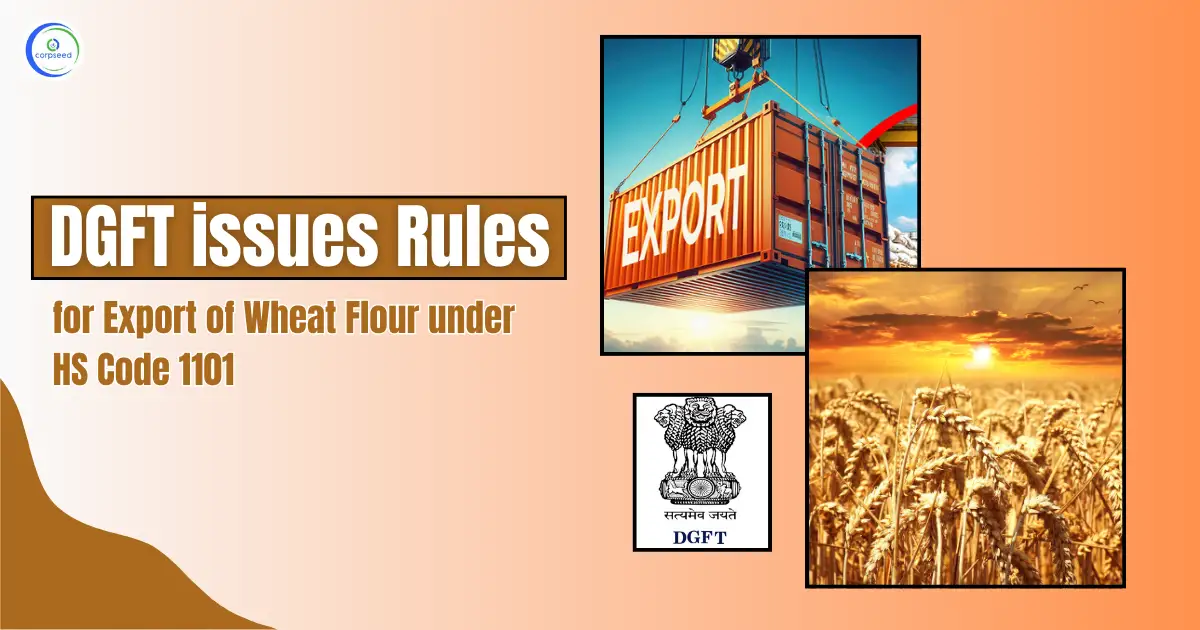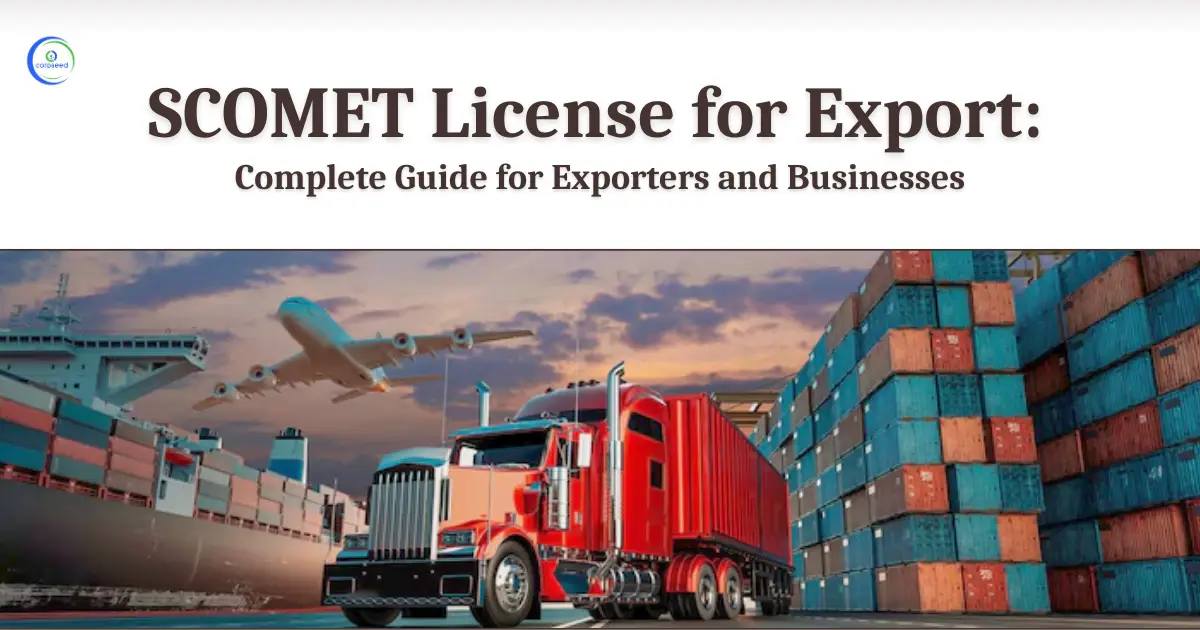In today’s global economy, Export Control Laws play an important role in regulating and preserving national security and international relations. These laws ensure that sensitive technologies, equipment and services are not misused or diverted for unlawful purposes. While these regulations are important for security, they also pose substantial challenges for businesses involved in international trade. In India, businesses must navigate multifaceted legal requirements related to Export Control Compliance to avoid fines, shipment delays, and legal liabilities.
Table of Contents
What is Export Control Law Compliance?
Export control compliance confirms that businesses comply with laws that control the export of sensitive goods, services, and technologies. These controls are important to prevent goods that could possibly harm national or international security and could be traded without proper supervision. In India, compliance is mainly governed by the Directorate General of Foreign Trade (DGFT) and particular provisions under the SCOMET (Special chemicals, Organisms, Materials, Equipment, and Technologies) regime.
Key aspects of Export Control Law Compliance include:
- SCOMET Licenses: It’s necessary for items that are sensitive in nature, such as military-related technology, certain chemicals, and electronics with potential military use.
- Dual-Use Goods: Goods that have both civilian and military applications should be regulated to confirm they are not misused.
- End-User Certification: A compulsory process to validate who is getting equipment and the envisioned end use.
--------------Blog Contact Form-------------
Key Regulations Governing Export Control in India
India has a strong set of laws and regulations governing export controls to confirm that exports do not negotiate national security or disrupt international agreements. Some key regulations include:
- Foreign Trade (Development and Regulation) Act, 1992: The Act provides a legal framework to regulate the export of goods and services in India, including the implementation of Import Export Code (IEC) and specific export restrictions.
- SCOMET Guidelines: These guidelines cover items with potential dual-use applications (i.e. equipment and technology that can be used for both civilian and military purposes). They need exporters to secure special licenses before exporting such goods.
- Export Import (EXIM) Policy: The EXIM Policy highlights the guidelines and procedures for export and import into India, confirming that exporters comply with legal requirements and get licenses for restricted items.
- Customs and Trade Regulations: Customs authorities ensure that exports adhere with Indian and international trade laws. These regulations govern all phases of export documentation, customs declaration, and assessment of tariffs.
Why Export Control Compliance Matters
Compliance with export control laws provides multiple benefits for businesses engaged in international trade:
- Legal Protection: Failure to comply with export control laws could result in heavy fines, shipment delays, or even suspension of export privileges. By following legal guidelines, businesses can escape these risks and maintain smooth international trade flows.
- National Security: Compliance guarantees that sensitive items do not fall into the wrong hands, guarding national security and international peace. This is mainly important when dealing with dual-use technology and military-related equipment.
- Operational Efficiency: Ensuring compliance with export control regulations helps avoid customs delays, fines, and shipment delays, permitting businesses to function effectively in international marketplaces.
- Reputation Management: Complying with these laws improves the reputation of your business as a responsible, law-abiding exporter. It can build trust with customers, partners, and governments, growing growth opportunities.
- Corporate Social Responsibility (CSR): By following export control laws, companies contribute to global peace and security, fulfilling their corporate social responsibility (CSR) obligations, and promote a positive brand image.
Common Challenges in Export Control Compliance
For many businesses, mainly those new to international trade, export control compliance can be a complex and resource-intensive process. Some of the challenges include:
- Complex Regulatory Framework: Export control regulations in India can be difficult to navigate. Laws vary based on the type of product, the end user, and understanding these distinctions can be challenging.
- Frequent Changes in Regulations: Export control laws and policies are updated frequently. Staying up to date on the latest modifications entails constant monitoring, which can be too much for businesses.
- Cumbersome Documentation: Proper documentation, including End-User Certificates, licenses, and customs declarations, is crucial for compliance. However, the paperwork can be time-consuming and complicated.
- End-User and End-Use Verification: It is important to ensure that the equipment is used for its intended purpose and not diverted for unauthorized purposes. Exporters must conduct thorough testing, which can be both laborious and complicated.
Also Read: GST & Taxation Compliance Services in India
Corpseed's Expertise in Export Control Compliance
Corpseed is a top consultancy firm specializing in Export Control Law Compliance services in India. With years of experience and expertise, we help businesses meet stringent legal requirements for the export of sensitive goods, ensuring that all regulatory requirements are met. Here’s how Corpseed can make compliance easier for you:
- DGFT Compliance and Licensing Services: We provide expert DGFT License services that help businesses secure the Import Export Code (IEC) and manage renewals. We ensure that your exports meet all the essential requirements, including applying for SCOMET licenses for sensitive products.
- SCOMET License Assistance: Businesses dealing with sensitive items like military technology, dual-use goods, and controlled chemicals must get SCOMET licenses from the DGFT. We specialize in assisting companies with this process, ensuring the proper documentation is in place and that the license is secured promptly.
- End-to-End Compliance Support: From initial assessments to final licensing and post-export compliance checks, we offer end-to-end support in the export control compliance journey. We guide you through every step of the process, ensuring that your business remains compliant from the beginning of the export process until goods are shipped.
- Customs Compliance and Documentation: We help streamline the customs compliance process, ensuring your export documentation is accurate and complete.
- Compliance Audits and Risk Assessments: We conduct comprehensive compliance audits of your export operations, identifying gaps and potential risks. Based on the audit, we provide customized recommendations to close compliance gaps and reduce the likelihood of penalties or disruptions.
Conclusion
Navigating Export Control Law Compliance in India can be challenging, especially with complex regulations governing sensitive items, dual-use items, and military technology. However, complying with these regulations is vital for businesses to maintain legal protection, operational efficiency, and a positive reputation in international trade.
Corpseed provides comprehensive support across DGFT licensing, SCOMET license assistance, customs documentation, and more. With end-to-end compliance solutions, your business stays aligned with all regulatory requirements, so you can focus on scaling globally while we manage the legal complexities.
This portion of the site is for informational purposes only. The content is not legal advice. The statements and opinions are the expression of author, not corpseed, and have not been evaluated by corpseed for accuracy, completeness, or changes in the law.
BOOK A FREE CONSULTATION
Get help from an experienced legal adviser. Schedule your consultation at a time that works for you and it's absolutely FREE.




_Corpseed.webp)

_Rules,_2025_Corpseed.webp)


